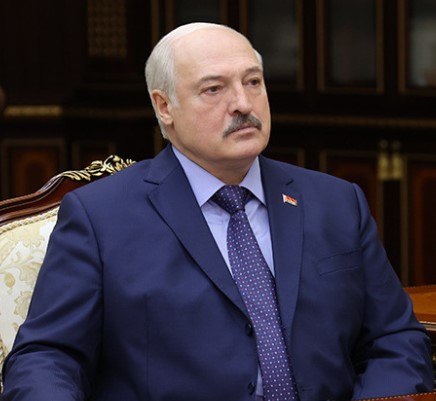The Office of the Rosselkhoznadzor for the Omsk Region summed up the preliminary results of work for 2021

 Rapid 4 in 1 tests for determining the residual amount of neomycin, kanamycin, gentamicin, spectinomycin in milk, whey
Rapid 4 in 1 tests for determining the residual amount of neomycin, kanamycin, gentamicin, spectinomycin in milk, whey PIONEER MEIZHENG BIO-TECH (5 in1) JC0871/ Rapid tests for the determination of the residual amount of β-lactams, tetracyclines, chloramphenicol, streptomycins, ceftiofur in milk, whey.
PIONEER MEIZHENG BIO-TECH (5 in1) JC0871/ Rapid tests for the determination of the residual amount of β-lactams, tetracyclines, chloramphenicol, streptomycins, ceftiofur in milk, whey.
The main activity of the Office of the ROSSELKHOZNADZOR for the Omsk Region (hereinafter referred to as the Office) in today's difficult conditions is to ensure the food and biological security of the region.
In 2021, officials of the Department carried out more than 3.5 thousand control and supervision measures, inspected more than 7 thousand (7276) vehicles and about 500 thousand tons of regulated products, revealed more than 4.5 thousand (4579) violations of the current legislation.
The Omsk region is a border region, which determines the specifics of the work of the Office: foreign trade and interregional trade turnover is growing from year to year.
As part of the control of the movement of goods across the state border and in transport, specialists from the Rosselkhoznadzor Department examined more than 5 thousand batches of dairy, MEAT and fish products, as well as feed and feed additives with a total weight of more than 176 thousand tons. When importing from the Republic of Kazakhstan, about 6,000 vehicles carrying 102,000 tons of imported regulated products were controlled.
More than 350,000 tons of regulated goods and 750 tons of animal products were exported from the Omsk region to the regions of the Russian Federation. More than 5 thousand quarantine certificates, 255 veterinary certificates to third countries have been issued and issued, of which 81 are for animal products ( MILK and dairy products, Artemia cysts, horns), and 174 certificates are for the EXPORT of ornamental animals.
During the transportation of controlled goods across the state border of the Russian Federation, the specialists of the Department revealed 106 facts of violations. As a result, more than 470 tons of products and raw materials of animal origin, 2.5 thousand bee packages and 54 thousand heads of farm animals and birds were returned to senders.
During the phytosanitary control of products from the EAEU countries, 5 types of quarantine objects were identified in 51 cases (dodder, eastern codling moth, South American tomato moth, pepino mosaic virus, western (flower) thrips). As a result, 680 flower cuts were destroyed and more than 700 tons of plant products were returned to exporting countries.
More than 3.8 thousand tons of plant products were returned to the Republic of Kazakhstan due to identified violations of the import procedure (lack of phytosanitary certificates (FSS), inconsistency of information in the FSS and on the label, etc.), in turn, 800 tons of grain and products of its processing were not allowed for export to a neighboring country.
The Department takes all measures to prevent the release into circulation in the territory of the region of food products that do not meet the requirements of the legislation of the Russian Federation and the technical regulations of the Customs Union.
As part of quality and safety monitoring, 1,277 samples of animal products and feed were selected, and about 500,000 tons of grain and products of its processing were controlled when shipped for export.
Based on the results of the studies, 90 samples revealed non-compliance with the requirements of the EAEU Technical Regulations on falsification, microbiological indicators and the content of antibiotics. For products that do not meet the quality and safety requirements, 34 declarations of conformity were withdrawn, and their manufacturers were brought to administrative responsibility.
In addition, since the beginning of the year, 7.4 thousand tons of grain have been identified that do not meet safety requirements for the residual content of active substances of pesticides. After carrying out the underworking of grain and re-examination, the shipment of these batches for export is allowed.
The Mercury system has been a powerful tool for ensuring the traceability of animal products for several years. In the course of data monitoring in FSIS "Mercury", the Department identified 1,450 violations committed by authorized persons of business entities and state veterinarians when issuing electronic veterinary accompanying documents (eVSD).
With regard to authorized persons, 399 protocols on an administrative offense were drawn up under Part 1 of Art. 10.8 of the Code of Administrative Offenses of the Russian Federation, 786 warnings were sent about the inadmissibility of violating veterinary legislation, registration was suspended for 59 authorized persons, access details were canceled for 41 authorized persons.
The Department pays special attention to quality control of products supplied to social institutions. The work is carried out in close cooperation with the legislative and executive authorities: the Department is part of the Commission for Combating Illegal Circulation of Industrial Products, established under the Government of the Omsk Region.
When analyzing the data of the FSIS "Mercury", the monitoring group of the Department identified 285 violations related to the supply of counterfeit food products. As a result, the activities of 26 phantom sites (IP Buryachenko, Severny Bereg LLC, Komodo LLC, SK Dobrynya, etc.) were terminated, where fictitious electronic veterinary accompanying documents for dairy products were regularly issued to enterprises in the Omsk region, supplying food products to social institutions.
And in the summer of 2021, during the inspection of the meat shop of IP Molnina O.I. (Omsk) it was found that about 4.5 tons of products were stored in unsanitary conditions, without observing the temperature regime, there were no stamps and documents.
The production of semi-finished products and the sale of meat products were carried out without entering data into the Mercury system and issuing veterinary accompanying documents. At the same time, it was planned to deliver it through traders to kindergartens and medical institutions in the region.
According to the results of the inspection, the meat products were disposed of at the State Enterprise "Vetsanutilzavod Kormilovsky", the enterprise was closed, the individual entrepreneur ceased his activities.
The department controls all activities aimed at preventing and eliminating especially dangerous animal diseases in the region. In 2021, 5 unfavorable points according to INAN, 24 foci of rabies, 14 foci of bovine leukemia, 1 case of parainfluenza were registered in the supervised territory. Work to localize and reduce the number of foci is carried out in close cooperation with the Main Department of Veterinary Medicine of the Omsk Region.
Every year officials of the Department monitor the quarantine phytosanitary state of the territory of the Omsk region. In 2021, based on the results of surveys, 9 quarantine phytosanitary zones for the golden potato nematode with a total area of more than 1000 hectares were abolished and 1 quarantine zone for dodder was established on an area of 9.7 hectares.
The quality of the future harvest directly depends on the planting material. The specialists of the Department controlled 2240 batches of seeds of agricultural crops with a total weight of 36.5 thousand tons. As a result of the research, 78 batches of seeds of agricultural crops with a total weight of 3.9 thousand tons were identified that did not meet the requirements of state standards. In addition, more than 12 thousand pieces of seedlings and planting material were sold in violation of legal requirements. The perpetrators were brought to administrative responsibility in the form of fines totaling more than 90 thousand rubles.
One of the components in the technology of plant production is the use of pesticides and agrochemicals. At the same time, non-compliance with the norms of their use, lack of control over their circulation can cause irreparable harm not only to the environment, but also to human HEALTH. The specialists of the Department carried out 13 control and supervision measures, as a result of which 10 violations of the rules for handling pesticides and agrochemicals were revealed. Agricultural producers did not comply with the established regulations for the use of pesticides and agrochemicals: dosages of preparations were violated, crops were processed that were not provided for by the regulations for use, and also without taking into account the phase of plant development.
All guilty persons are brought to administrative responsibility in accordance with Art. 8.3 of the Code of Administrative Offenses of the Russian Federation in the amount of 28 thousand rubles, they were issued orders to eliminate violations and made recommendations to take measures to eliminate the causes and conditions that contributed to the commission of an administrative offense.
As a result of violation of the rules for handling pesticides and agrochemicals, the fertile layer is also destroyed and the land is damaged - land supervision specialists recorded such facts on an area of 9.8 hectares.
The Omsk region is an agrarian region, therefore the Department solves the problems of involving agricultural land in circulation and eliminating violations associated with a decrease in soil fertility.
During more than 350 control and supervision measures, including 119 scheduled (raid) inspections, more than 18.7 thousand hectares of agricultural land were inspected. On a total area of about 5 thousand hectares, violations of the law were revealed, the largest of which was overgrowing with trees and shrubs (4.9 thousand hectares).
In addition, unauthorized dumps with an area of about 13 hectares, unauthorized quarries with an area of 3.5 hectares, unauthorized removal or displacement of a fertile soil layer in an area of 7.8 hectares were identified.
In cooperation with the Federal State Budgetary Institution "Omsk Reference Center of Rosselkhoznadzor", about 20 hectares of agricultural land contaminated with hazardous chemicals, livestock and poultry waste were identified. In 32 soil samples, an excess of the maximum permissible concentrations of chemicals was found, in 49 samples - a decrease in fertility. The results of laboratory studies served as the basis for bringing the perpetrators to administrative responsibility. The total amount of fines imposed for violations of land legislation exceeded 2 million rubles. As a result of the work of the Department, more than 2.5 thousand hectares of arable land are involved in agricultural circulation.
The work of the Office is actively covered in the media, often publications and reports have a wide public resonance, thereby stimulating the constant interest of the press. The Office of the Rosselkhoznadzor for the Omsk Region has a reputation for being open and accessible to both journalists and citizens.
Press Service of the Office of the Rosselkhoznadzor for the Omsk Region
Read together with it:
- Парагвай: Экспорт субпродуктов является растущей отраслью и уже достиг 95,4 млн долларов СШАЭкспорт говяжьих субпродуктов в этом году значительно вырос. К концу августа выручка составила 95,4 млн долларов США по сравнению с 54,6 млн долларов США на тот же конец прошлого года. По данным SENACSA, в конце августа этого года было экспортировано 51 миллион килограммов мяса по сравнению с 33,7 миллиона килограммов на конец того же месяца прошлого года. Экспорт субпродуктов увеличился на 51,3%....
- Новые горизонты сотрудничества: Россия и Аргентина обсуждают совместный доступ на рынки продукции животного происхожденияОдной из ключевых тем конференции стал контроль за производством ветеринарных препаратов в Аргентине. Аргентинская сторона представила свою систему контроля, включающую Управление ветеринарных продуктов и Управление лабораторий животных. Эти организации обеспечивают высокие стандарты безопасности, так как каждая производственная единица подвергается проверкам каждые 3-5 лет и зарегистрирована в ин...
- С января по июль экспорт свинины из ЕС вырос на 1,6%На втором месте оказались Нидерланды с объёмом экспорта в 392 000 тонн. Дания экспортировала свинину в третьи страны с объёмом в 308 000 тонн, что примерно на 13% меньше, чем в предыдущем году. Германия экспортировала 180 000 тонн, что на 18% меньше, чем годом ранее. Это было обусловлено, главным образом, дополнительными ограничениями на экспорт, вызванными вспышкой ящура в начале года. Помимо зап...
- Московская область планирует нарастить мясное производство на 25% к 2030 годуВ Московской области более 100 предприятий уже выпускают около 305,000 тонн мяса, из которых значительная доля поступает от 19 ведущих производителей свинины и мяса птицы. Также в регионе реализуются два новых инвестиционных проекта: в Можайске строится утиная ферма на 125,000 птиц, а в Ступино — овцеводческое хозяйство на 11......
- В Кремле пообещали ответ на санкции сообразно интересам РоссииДмитрий Песков В Кремле начали анализировать введенные санкции для разработки ответных мер, заявил пресс-секретарь президента России Дмитрий Песков, передает корреспондент РБК. «В настоящий момент анализируются те санкции, которые определены. Будем делать то, что наилучшим образом соответствует нашим интересам», — сообщил Песков, отвечая на вопрос об ответных мерах России. 19-й пакет санкции Еврос...
- Zakharova promised "tough steps" in response to the 19th EU sanctions package.Maria Zakharova RUSSIA will respond harshly to the latest round of EU sanctions, Russian Foreign Ministry spokesperson Maria Zakharova stated on TELEGRAM . The EU previously adopted the 19th package of anti-Russian sanctions, which included a ban on the import of Russian LNG, new restrictions on oil companies, ships, banks, and the EXPORT of certain goods, as well as restrictions on the movement o...



























































